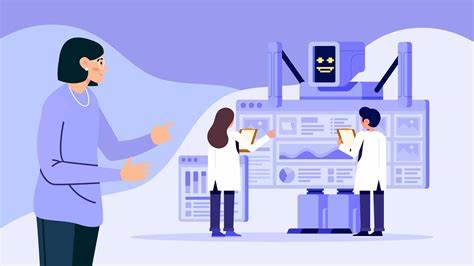Standardized Tests Are Being Replaced by AI Learning Systems in 2025: A New Chapter in Global Education

What Just Happened?
In a historic pivot, several major education systems, including those in Finland, South Korea, Germany, and Canada, have announced that they are replacing traditional standardized testing with AI-driven personalized assessment platforms starting this academic year.
These AI tools don't just evaluate students once a year. Instead, they continuously track student progress, adapt to their learning style, and offer real-time feedback, making yearly exams like the SAT, ACT, and GCSEs increasingly obsolete.
This decision reflects growing consensus that standardized tests are outdated, inequitable, and limited in scope, especially in a post-AI education world.
What’s Changing?
Here’s what schools are now using instead of one-size-fits-all exams:
- Personalized AI tutors that adjust difficulty based on student behavior
- Skill-based dashboards where students are assessed continuously throughout the year
- Project-based performance tasks that mirror real-world skills
- AI-led diagnostics that identify emotional, social, and learning gaps
This means a 14-year-old in Berlin and a 17-year-old in Toronto might both study algebra, but how they’re assessed, and when, will depend on their pace, not the school calendar.
Why the Shift Now?
This global transition didn’t happen overnight.
Several factors drove it:
- Pandemic learning gaps showed that exams don’t reflect real abilities
- Mental health concerns around academic pressure and anxiety
- AI breakthroughs made adaptive learning viable at scale
- Workforce trends demand creativity, collaboration, and critical thinking, not just memorization
Educators realized that testing once a year with rigid scoring didn’t truly capture a student’s potential or prepare them for real careers.
What Are the Benefits?
This shift unlocks multiple advantages:
- Fairness
AI can account for individual learning challenges like ADHD, dyslexia, or language barriers.
- Continuous Growth
Students are evaluated in small, consistent doses, not based on a 3-hour test.
- Real Skill Development
Creativity, problem-solving, and teamwork are now central parts of grading.
- Lower Anxiety
Without “finals week,” stress is spread evenly and managed better.
- Faster Intervention
Teachers can see where students struggle in real-time and offer targeted support.
Finland’s Ministry of Education reports a 22% improvement in overall student confidence within the first semester of AI-led learning.
What About Teachers?
Far from being replaced, teachers are now more focused on mentorship, emotional guidance, and helping students apply what they learn in meaningful ways.
AI handles routine assessment and lesson pacing. Teachers spend more time:
- Reviewing project work
- Providing human feedback and context
- Running discussions and lab sessions
- Leading interdisciplinary activities
Many educators say they now feel less like administrators and more like educators again.
Is There Any Resistance?
Yes, and it’s understandable.
- Some parents fear too much reliance on AI
- Teachers’ unions want stronger privacy protections
- Critics worry about bias in machine-driven assessments
To address this, most countries adopting AI learning systems are mandating:
- Transparent audit logs for every AI decision
- Parental dashboards to track learning progress
- Human-in-the-loop reviews for major performance evaluations
These safeguards are intended to ensure students are still seen and understood as individuals, not just data points.
What Happens to University Admissions?
With no standardized test scores, universities are adapting too.
New models for admission include:
- Long-term performance portfolios
- AI-generated learning summaries and growth charts
- Interview-based evaluations
- Real-world project submissions
Some schools now even ask applicants to submit a digital “Learning Journey”, showing how their knowledge evolved over time, including strengths, struggles, and achievements.
What You Should Know
- Several countries are ending standardized testing in favor of continuous AI-based evaluation
- Education is becoming more personalized, project-driven, and emotionally aware
- Teachers play a more interactive, supportive role than ever before
- University admissions are evolving alongside classroom changes
The Bottom Line
2025 may be the year when testing stopped defining learning.
By embracing AI-powered personalized education, the world is moving closer to systems that nurture individual potential, lifelong learning, and emotional resilience.
The black-and-white scantron sheet is being replaced by full-color insight into how each student learns, grows, and thrives.
And that could mean a smarter, fairer future, for everyone.